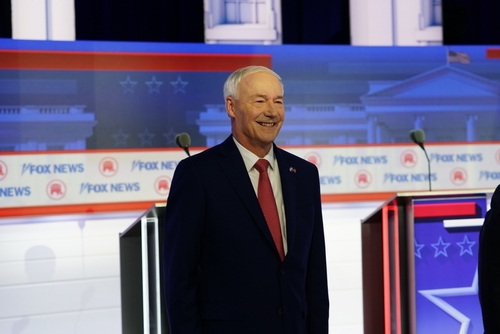
IRAN BACKED by Neighbors – Enrichment SUPPORT Rises!
Middle Eastern leaders are realigning in support of Iran’s uranium enrichment activities, marking a significant shift in regional alliances with global repercussions.
At a Glance
- The US Senate passed a non-binding motion against removing terrorism designation from Iran’s IRGC.
- Sen. James Lankford introduced the motion, passing with support from both parties.
- Middle Eastern leaders reportedly support Iran’s uranium enrichment.
- The motion complicates efforts to revive the 2015 nuclear deal.
Senate Motion Against the IRGC
The US Senate recently passed a non-binding motion prohibiting the Biden administration from removing the foreign terrorist designation on Iran’s Revolutionary Guard Corps (IRGC) amid attempts to revive the nuclear agreement. Republican Senator James Lankford introduced the motion, which passed with a 62-33 vote, showing bipartisan support even though the motion complicates the revival of the 2015 nuclear deal aimed at curtailing Iran’s nuclear ambitions.
The intention is to ensure that any deal addresses not only Iran’s nuclear program but also Tehran’s regional activities. Democratic Majority Leader Chuck Schumer and Senators Ben Cardin, Joe Manchin, and Chris Coons supported this measure. Moreover, Chris Coons remarked on the necessity of pushing for a robust deal that addresses Iran’s nuclear weapons program and other malign activities.
Shifting Support From Middle Eastern Leaders
Sen. James Lankford has expressed surprise at Middle Eastern leaders’ apparent acceptance of Iran enriching its uranium. His visits to Iraq, Jordan, Lebanon, and Israel revealed a weak regional opposition to Iran’s nuclear developments. The newfound support suggests a shift in strategic priorities, indicating a change from traditional alliances in the Middle East. This change could potentially impact international diplomatic efforts to curb nuclear proliferation.
“In order to encourage the Biden administration’s negotiations to push for the strongest possible deal that addresses Iran’s nuclear weapons program and many other malign activities” Chris Coons.
Lankford, emphasizing his concerns during these visits, noted that countries capable of uranium enrichment usually have nuclear weapons. The strategic encouragement for Iran from its regional neighbors perhaps seeks to counterbalance opposing regional powers or serve as a diplomatic tool in broader negotiations. This shift is crucial, as it could alter the landscape of cooperation and competition among Middle Eastern nations.
International Implications and Future Prospects
This development comes with international ramifications, complicating ongoing diplomatic negotiations and strategies led by the United States and its allies. The Biden administration faces challenges in attempting to reconstruct the nuclear deal, with previous sanctions and countermeasures having dramatically altered Iran’s position and the regional balance of power.
“Galloping forward” – Antony Blinken criticized the previous administration’s campaigns while defending efforts to revive the deal that includes addressing Iran’s nuclear activities and sanctions.
Questions remain about potential future developments in regional alliances, as Iran’s nuclear capabilities and partnerships realign with shifting geopolitical strategies. These evolving alliances underscore the volatile nature of Middle Eastern politics, bringing into question long-held assumptions about alliances and rivalries. The next steps from both regional leaders and international players will be critical in shaping the future security landscape.




